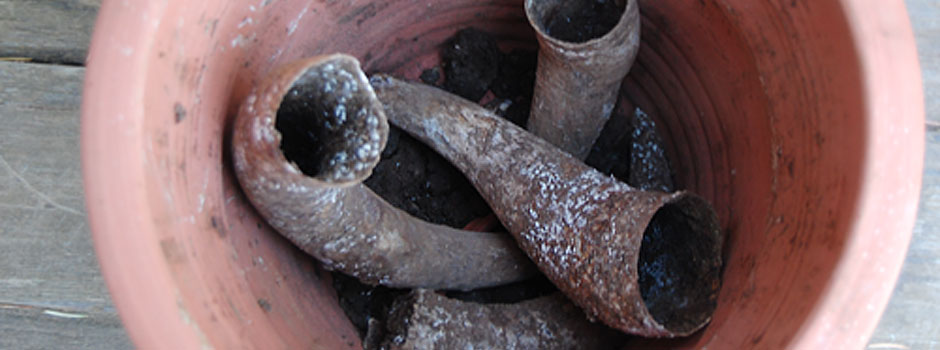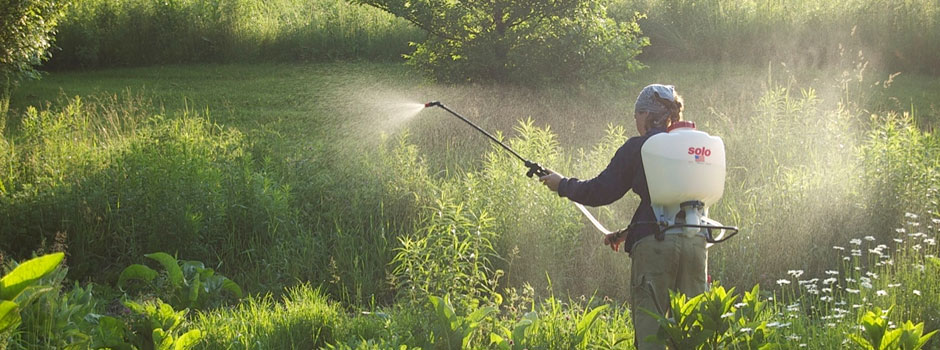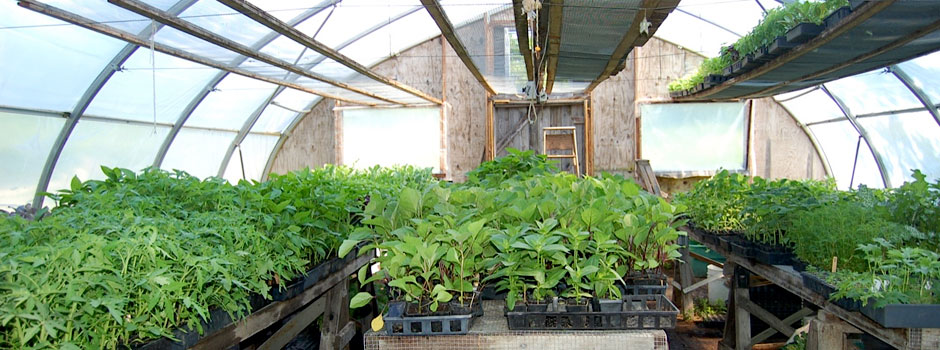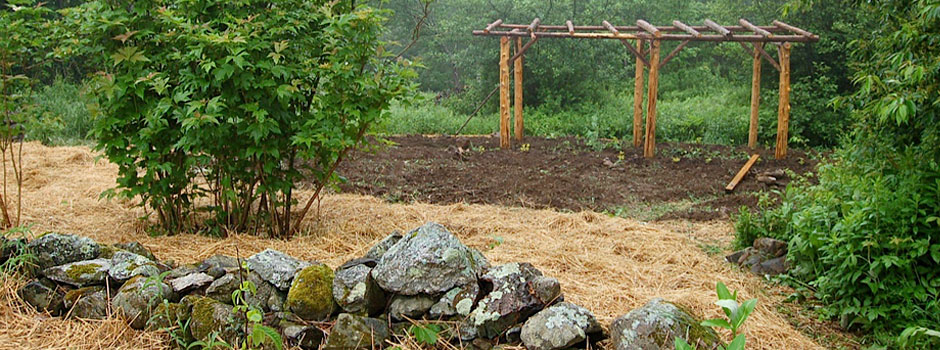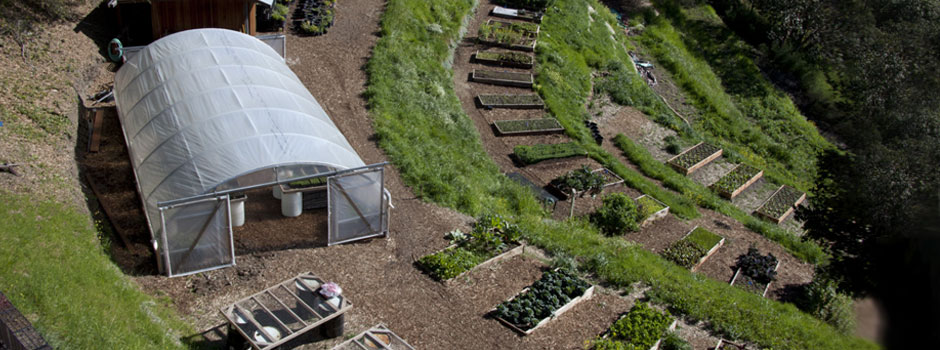“Healing people and the planet through agriculture”
Science
Biodynamic agriculture views a farm as an agricultural ecosystem whose goal is to operate as a self-contained and integrated system in the most holistic sense. Biodynamic farm management requires close attention to the living (bio) and energetic (dynamic) interrelation of the constituent parts of the agricultural system. This stands in stark contrast to a more reductionist view of conventional agriculture that focuses on individual parts (soil, animals, crops, even the farmer) in isolation from each other. Â
Studies have compared Biodynamic farming methods to both organic and conventional methods, and most studies suggest that Biodynamic farms have superior soil quality, more fertile and stable compost piles, stronger crop vitality, and decreased reliance or complete elimination of outside inputs such as fertilizers and pesticides.
One of the chief differences between the USDA’s requirements for organic certification, and Demeter’s requirement for Biodynamic certification, is Demeter’s requirement for the use of eight preparations. These preparations (numbered 500 through 508) are made from animal manure, minerals, and herbs, and are applied in homeopathic quantities to soil, foliage, and compost piles. Anecdotal evidence and the strong growth of Biodynamic farms worldwide speak to the perceived benefit of the preparations, which were designed to promote nutrient and energy cycling in the soil and above ground. However, the mechanisms of action for the preparations, as well as the full extent of their abilities, are still not fully understood. While a reductionist scientific approach can explore some of the cause and effect that results from the preparations’ use, a holistic approach to scientific investigation of Biodynamic agriculture has also been utilized over the past 90 years to attempt to better understand them.
Studies of soil treated with the preparations have been analyzed and their effects have been compared to conventionally- and organically-treated soil. Thus far, the studies have consistently found biodynamic soil quality superior to conventional soil quality in many ways, such as carbon content, lower bulk density and aggregate stability. Biodynamic soil frequently is characterized by increased microbial activity, greater biodiversity, and higher nutrient content than soils farmed conventionally. Similarly, compost treated with the preparations has been shown to cure at higher temperatures, resulting in greater microbial activity and faster maturation than control piles.
Several longer-term studies have been conducted to investigate the yields and viability of biodynamic agriculture. Two important findings emerged from these studies. First, the biodynamic farms were less susceptible to variation in yield from year to year, which made them less risky to operate. Second, they required fewer inputs, like fertilizers and pesticides, which lowered their operating costs. In all, the studies concluded that biodynamic farms were both a viable and profitable alternative to conventional farming.
Recent studies have aimed to better understand the composition of the preparations themselves, as well as how and when they promote healthier soil. The preparations seem to be more effective under certain conditions than others, and more detail about the conditions will help farmers apply the preparations to maximum benefit.
Demeter USA believes strongly in the role of scientific inquiry and peer-reviewed research in alternative farming systems including Biodynamic agriculture. Working closely with land grant universities, regional colleges, agricultural organizations, and farmers helps us to continue to meet our goals to teach and advocate on behalf of biodynamics, its practitioners, and the environment. But we also suggest that farmers themselves conduct their own on-farm research to evaluate new ways of improving farming techniques that are environmentally friendly, economically feasible, and sustainable from season to season. Biodynamic farming may be a pathway that helps growers achieve these goals.
Peer-Reviewed Articles
Microbiological Features and Bioactivity of a Fermented Manure Product (Preparation 500) Used in Biodynamic Agriculture
Giannattasio, M., E. Vendramin, F. Fornasier, S. Alberghini, M. Zanardo, F. Stellin, et. al. 2013. Microbiological Features and Bioactivity of a Fermented Manure Product (Preparation 500) Used in Biodynamic Agriculture. Journal of Microbiology and Biotechnology 23(5) 644-651.
This study focused on one of the compost treatments unique to biodynamics, Preparation 500. After analyzing the microbiology of the preparation, the researchers speculate that the recommended doses of the treatment can positively affect soil by regulating hormones and acting as a biostimulant.
Soil and Winegrape Quality in Biodynamically and Organically Managed Vineyards
Reeve, J. R., L. Carpenter-Boggs, J. P. Reganold, A.L. York, G. McGourty, and L.P. McCloskey. 2005. Soil and Winegrape Quality in Biodynamicaly and Organically Managed Vineyards. American Journal of Enology and Viticulture 56(4):367-376.
In comparing biodynamically and organically-managed vineyards, this study found that biodynamic grapes had higher Brix, phenols, and anthocyanins than their organic counterparts. The vines were also more balanced (fruit/shoot weight ratios).
Comparisons of Conventional, Organic, and Biodynamic Methods
Goldstein, W., W. Barber, L. Carpenter-Boggs, D. Dalsoren, C. Koopmans, 2004. Comparisons of Conventional, Organic, and Biodynamic Methods. Michael Fields Agricultural Institute, East Troy, WI, USA.
This study suggests that biodynamic management can result in better crop yields during years when conventionally managed yields are down.
Soil Fertility and Biodiversity in Organic Farming
Maeder, P., A. Fliessbach, D. Dubois, L. Gunst, P. Fried, and U. Niggli. 2002. Soil Fertility and Biodiversity in Organic Farming. Science 296(5573) 1694-1697.
A 21-year study of various farm management systems found that although organic and biodynamically-managed systems had less yield than traditionally-managed systems, their reduced dependence on external inputs (e.g. fertilizer, pesticides) make them viable alternatives to conventional methods.
Organic and Biodynamic Management: Effects on Soil Biology
Carpenter-Boggs, L., A.C. Kennedy, and J.P. Reganold. Organic and Biodynamic Management: Effects on Soil Biology. 2000. Soil Science Society of America Journal 64(5):1651-1659.
This short-term study compared soil treated with biodynamic composts and field sprays to untreated soils. The study found that  biodynamic composts were similar to organic composts in their ability to increase soil microbial biomass, respiration, dehydrogenase activity, and earthworm population compared to untreated soil. The field sprays were also promising, and resulted in greater MinC and different microbial fatty acid profiles than untreated soil.
Effects of Biodynamic Preparations on Compost Development
Carpenter-Boggs, L., J.P. Reganold, and A.C. Kennedy. 2000. Effects of Bioldynamic Preparations on Compost Development. Biological Agriculture and Horticulture 17(4) 313-328.
Biodynamic preparations have a “discernable” affect on the chemical and microbial aspects of compost that results in faster maturation than control piles.
Soil Quality and Financial Performance of Biodynamic and Conventional Farms in New Zealand
Reganold, J.P., A.S. Palmer, J.C. Lockhart, and A.N. Macgregor. 1993. Soil Quality and Financial Performance of Biodynamic and Conventional Farms in New Zealand. Science. 260(5106) 344-349.
This New Zealand study compared biodynamic and conventional farming systems to assess the financial viability of biodynamically-managed farms. The study found that the biodynamic farms not only had superior soil quality (e.g. higher microbial activity, more earthworms, thicker topsoil), but were comparably profitable to their traditional counterparts.
Overviews
The Relative Sustainability of Organic, Biodynamic and Conventional Viticulture
Mr. Christopher Penfold and Dr. Cassandra Collins
A six year trial at McLaren Vale in South Australia investigated the changes in soil health, fruit production and wine quality. Organic and biodynamic production led to improved soil quality, with more soil organisms including much greater earthworm populations. Wine quality was also improved.
Biodynamic Farming & Compost Preparation
Diver, Steve. 1999. Biodynamic Farming & Compost Preparation: Alternative Farming Systems Guide. ATTRA, Butte, MT.
This guide from the National Sustainable Agriculture Information Center gives an introduction to the tenets of biodynamic farming with a special focus on biodynamic composting and associated promising research. The paper also includes helpful summaries of the differences between biodynamic and conventional farming, as well as an extensive collection of further resources on biodynamics.
The Science Behind Biodynamics
Carpenter-Boggs, Lynne. 2010. The Science Behind Biodynamics. [Internet] http://www.extension.org/pages/28756/the-science-behind-biodynamics#.Uou4b41hytg.
The author of several research papers on biodynamics presents an accessible overview of current findings on biodynamic management and its possible mechanisms of action. Dr. Carpenter-Boggs also gives several helpful tips for farmers who are interested in conducting experiments with biodynamic management on their own farms.
Popular Press
A Radical Approach That is Grounded in Common Sense
Shieh, Tersina. 2012. A Radical Approach That is Grounded in Common Sense. South China Morning Post.
A brief introduction to biodynamics practices as they relate to wine production, including a German study that found that biodynamic vineyard management resulted in healthier grapes.
